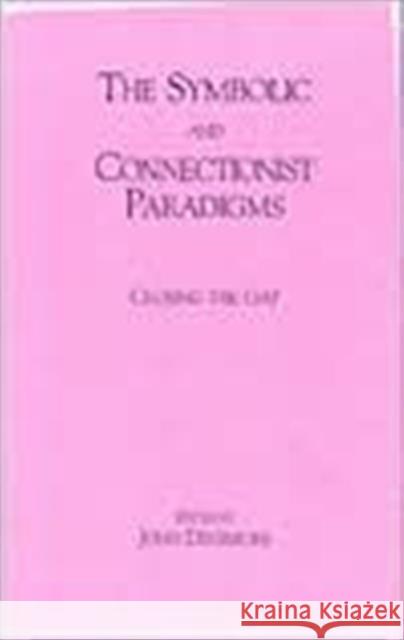The Symbolic and Connectionist Paradigms : Closing the Gap » książka
The Symbolic and Connectionist Paradigms : Closing the Gap
ISBN-13: 9780805810790 / Angielski / Twarda / 1992 / 280 str.
The modern study of cognition finds itself with two widely endorsed but seemingly incongruous theoretical paradigms. The first of these, inspired by formal logic and the digital computer, sees reasoning in the principled manipulation of structured symbolic representations. The second, inspired by the physiology of the brain, sees reasoning as the behavior that emerges from the direct interactions found in large networks of simple processing components. Each paradigm has its own accomplishments, problems, methodology, proponents, and agenda. This book records the thoughts of researchers -- from both computer science and philosophy -- on resolving the debate between the symbolic and connectionist paradigms. It addresses theoretical and methodological issues throughout, but at the same time exhibits the current attempts of practicing cognitive scientists to solve real problems.
The modern study of cognition finds itself with two widely endorsed but seemingly incongruous theoretical paradigms. The first of these, inspired by formal logic and the digital computer, sees reasoning in the principled manipulation of structured symbolic representations. The second, inspired by the physiology of the brain, sees reasoning as the behavior that emerges from the direct interactions found in large networks of simple processing components. Each paradigm has its own accomplishments, problems, methodology, proponents, and agenda.
This book records the thoughts of researchers -- from both computer science and philosophy -- on resolving the debate between the symbolic and connectionist paradigms. It addresses theoretical and methodological issues throughout, but at the same time exhibits the current attempts of practicing cognitive scientists to solve real problems.











